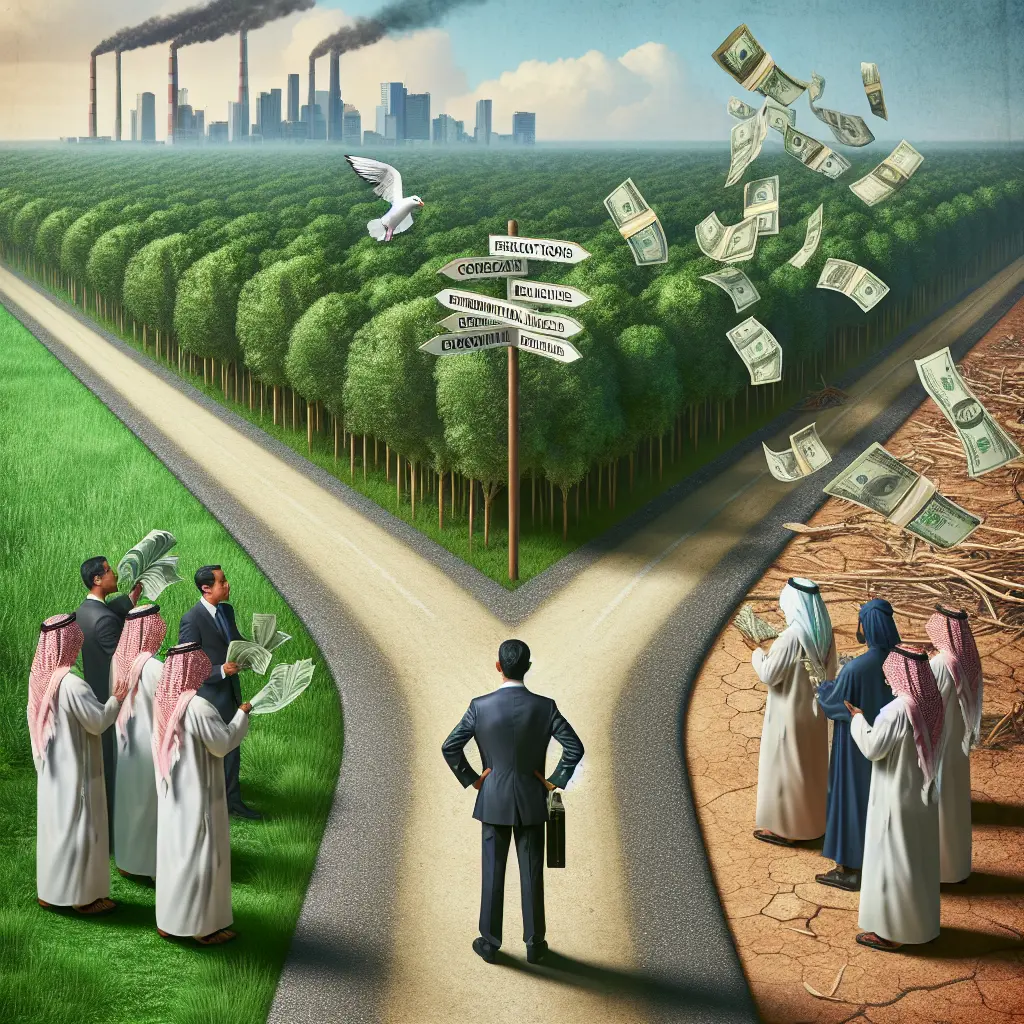
In the realm of U.S. politics, few topics stir as much controversy and debate as the environmental policies championed by former President Donald Trump. Trump's tenure was marked by a staunch commitment to deregulation, particularly in the environmental sector. This approach has left a lasting impact on federal environmental laws, the coal industry, and America’s stance on global climate commitments.
Under the Trump administration, the U.S. witnessed significant rollbacks of environmental regulations. These rollbacks were implemented with the intent of promoting energy independence and supporting industries such as fossil fuels and coal, which Trump argued were crucial for economic growth and job creation. The administration's policies often emphasized economic benefits while sidelining environmental concerns, leading to heated debates across the nation and the world.
One of the most notable actions taken by the Trump administration was the withdrawal from the Paris Agreement, a global accord aimed at addressing climate change by reducing carbon emissions. This move was justified by Trump with claims that the agreement disadvantaged the U.S. and posed threats to American jobs and energy independence. The withdrawal positioned the U.S. as one of the few nations not part of the collective effort to combat global warming, raising international concerns about the effectiveness of worldwide climate change mitigation efforts without U.S. participation.
The Trump administration also targeted specific legislations such as the Clean Air Act and the Clean Water Act. Trump’s EPA enacted numerous rollbacks on policies that were originally designed to protect air and water quality. For instance, changes to the Clean Water Act removed protections for millions of miles of waterways and wetlands, potentially increasing pollution levels and harming wildlife habitats.
Moreover, Trump’s support for the coal industry underscored his administration's environmental policy direction. Despite global shifts toward renewable energy sources, Trump vocally advocated for reviving America's coal sector, promoting it as a step towards energy independence. This stance was controversial given the environmental impact of coal burning, which is known to be a significant source of carbon emissions contributing to climate change.
The deregulatory moves were not without opposition. Environmental groups, certain states, and activists frequently challenged the administration's policies in court, arguing that they posed serious threats to environmental protection and public health. These legal battles highlighted the deep divisions in U.S. environmental policy approaches and underscored the challenges of balancing economic interests with ecological sustainability.
In recent news related to Trump and his policies, various sectors including Silicon Valley have shown divergent reactions. Elon Musk’s endorsement of Trump following a deadly rally shooting has sparked discussions about political influence and business leaders' responsibilities in addressing societal issues like climate change. Musk's backing of Trump, especially given Tesla’s stake in sustainable technologies, has raised eyebrows and questions about potential conflicts between personal political beliefs and business ethics.
Furthermore, controversies such as Trump's threats to "shut down" Google or his influence on Silicon Valley figures like J.D. Vance, who is now backed by major tech personalities for his VP pick, continue to stir significant media attention. These instances reflect how Trump’s political strategies and affiliations could sway opinions and decisions in tech circles that are pivotal to advancements in green technologies and sustainable practices.
Despite these controversies, Trump’s straightforward support from certain factions, depicted by events like online sticker battles or narratives claiming divine intervention in his survival and success, shows a solidified base that resonates with his disregard for conventional environmental policies. This base views regulatory measures as impediments to economic progress and personal freedoms.
The lasting impact of the Trump administration's environmental policies will likely be debated for years to come. The administration's focus on deregulation and economic gains came at a substantial cost to environmental protection efforts, potentially altering the U.S.'s ecological and global climate trajectory profoundly.
As we continue to grapple with global environmental challenges, the policies set during Trump’s presidency serve as a critical study of the interplay between environmental stewardship and economic interests. It reminds us that policy decisions can have broad and lasting impacts, stretching well beyond a single presidency.
In conclusion, Donald Trump’s approach to environmental regulations was characterized by significant rollbacks aimed at promoting economic interests over ecological concerns. The implications of these decisions—ranging from increased support for fossil fuels to America’s withdrawal from the Paris Agreement—continue to influence debates on how best to balance economic growth with environmental sustainability.
Thank you for joining me in this exploration of one of the most contentious periods in U.S. environmental policy history. As we move forward, may we strive for solutions that ensure our planet’s health and prosperity for generations to come.
Alexander Reid